Important Information On Using This Service
- Ergsy carefully checks the information in the videos we provide here.
- Videos shown by YouTube after a video has completed have NOT been reviewed by ERGSY.
- To view, click the arrow in the center of the video.
Using Subtitles and Closed Captions
- Most of the videos you find here will have subtitles and/or closed captions available.
- You may need to turn these on and choose your preferred language.
Turn Captions On or Off
- Go to the video you'd like to watch.
- If closed captions (CC) are available, settings will be visible on the bottom right of the video player.
- To turn on captions, click settings.
- To turn off captions, click settings again.
Find A Professional
More Items From Ergsy search
-

Vaginal Cancer
Relevance: 100%
-

Bowel cancer - Symptoms and signs to look out for
Relevance: 86%
-

Endometrial Cancer
Relevance: 80%
-

What is Cancer?
Relevance: 78%
-

Ovarian Cancer
Relevance: 75%
-

Treating prostate cancer
Relevance: 73%
-

Learn about bowel cancer (British Sign Language version)
Relevance: 73%
-
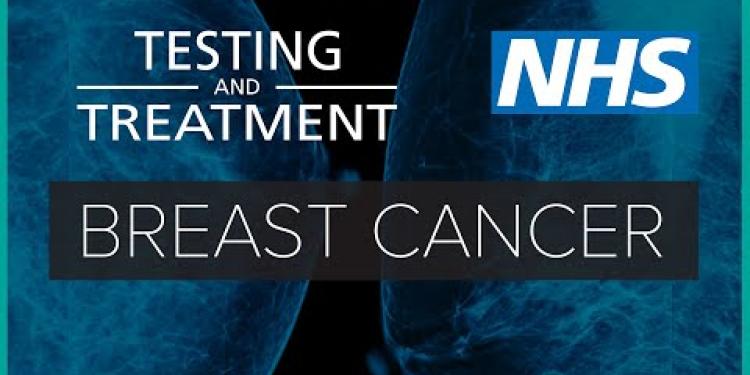
Breast cancer: testing and treatment | NHS
Relevance: 71%
-

Don't carry the worry of cancer with you | NHS
Relevance: 71%
-

Why do men get prostate cancer?
Relevance: 70%
-

World Pancreatic Cancer Day - No Time to Wait
Relevance: 70%
-

Prostate cancer symptoms - detecting them early
Relevance: 69%
-
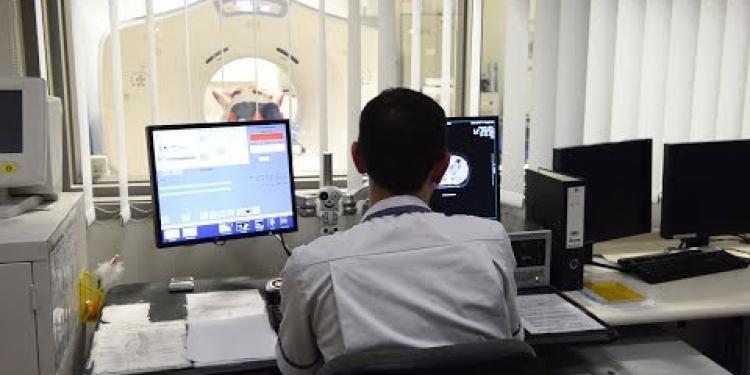
Having radiotherapy for breast cancer - 3 Videos
Relevance: 68%
-
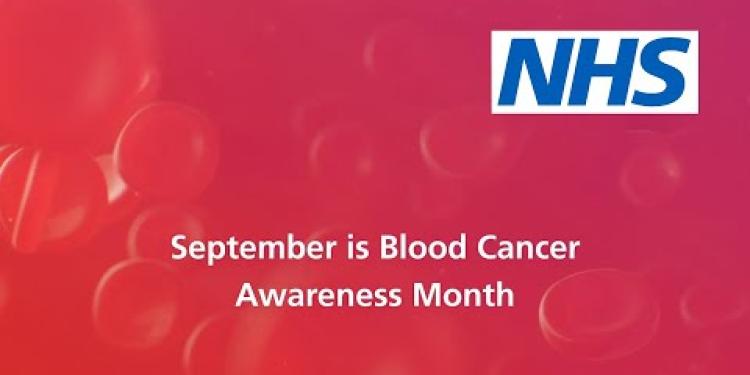
4 facts about blood cancer that you should know | NHS
Relevance: 65%
-

Worried about signs that could be cancer? Contact your GP practice | NHS
Relevance: 65%
-

Skin cancer education
Relevance: 65%
-

Taking a Genetic Family History - The Conversation (Bowel Cancer)
Relevance: 64%
-

Prostate cancer diagnosis and tests
Relevance: 63%
-

What is Radiotherapy, and its use in treatment for cancers?
Relevance: 62%
-

Head and Neck Cancer Diagnosis
Relevance: 62%
-

What is Prostate Cancer?
Relevance: 61%
-

Genomics I: An overview of genomics in cancer care
Relevance: 60%
-

Bowel cancer screening: Alan Titchmarsh and Tommy Walsh | NHS
Relevance: 59%
-

Mouth Cancer Awareness
Relevance: 56%
-

Getting to know your Testicles: Testicular Cancer Awareness with Dr James Howarth, Spilsby Surgery
Relevance: 56%
-

Endometrial Cancer
Relevance: 55%
-
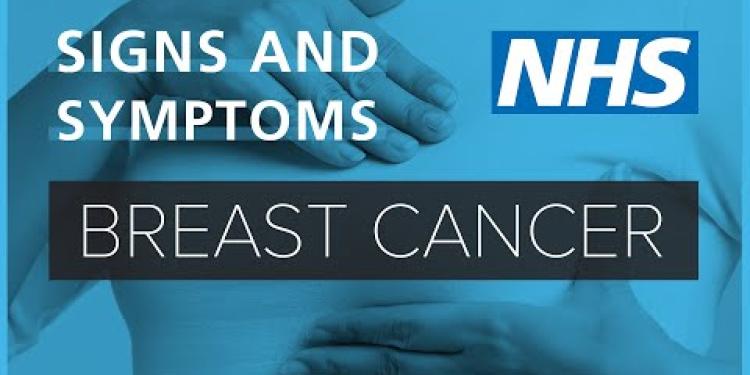
About Breast cancer - signs and symptoms | NHS
Relevance: 54%
-
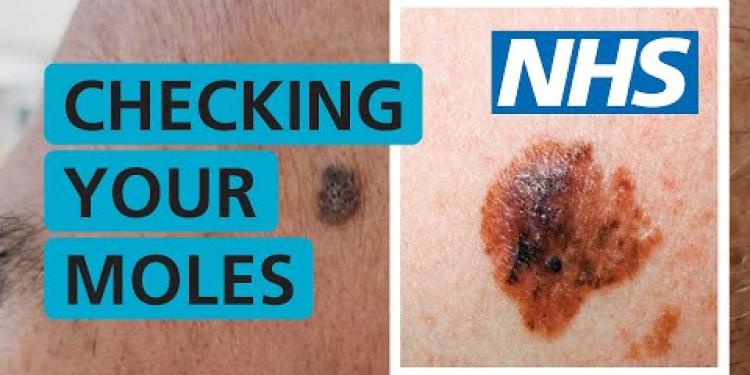
Skin Cancer - How do I check if my mole is skin cancer? | NHS
Relevance: 54%
-

Living with prostate cancer
Relevance: 53%
-

Raising awareness of ovarian cancer
Relevance: 53%
-

Get cancer symptoms checked by your GP | NHS
Relevance: 53%
-

Vulval Cancer
Relevance: 52%
-

Am I more at risk of prostate cancer?
Relevance: 51%
-

Ovarian cancer - signs and symptoms to look out for
Relevance: 50%
-

Endometrial Cancer
Relevance: 45%
-

NHS breast cancer screening
Relevance: 43%
-

Mouth Cancer Infomercial
Relevance: 42%
-

Royal Berkshire NHS Foundation Trust: Radiotherapy for prostate cancer
Relevance: 41%
-

Air Pollution and Lung Cancer
Relevance: 37%
-

Get cancer symptoms checked by your GP | NHS - BSL version
Relevance: 37%
Understanding Vaginal Cancer
Overview of Vaginal Cancer
Vaginal cancer is a rare type of cancer that occurs in the vaginal tissues, the muscular tube that connects the uterus to the outer genitals in women. It most commonly affects women over the age of 50 but can occur at any age. The two main types of vaginal cancer are squamous cell carcinoma, which begins in the thin, flat cells lining the vagina, and adenocarcinoma, which starts in the glandular cells of the vaginal lining.Symptoms to Watch For
The early stages of vaginal cancer may not exhibit noticeable symptoms. However, as the disease progresses, symptoms can include abnormal vaginal bleeding (particularly after menopause), watery vaginal discharge, a lump or mass in the vagina, pelvic pain, pain during intercourse, and difficulty urinating or frequent urination. If you experience any of these symptoms, it's crucial to consult a healthcare professional for a thorough examination.Risk Factors and Prevention
Several factors may increase the risk of developing vaginal cancer, including age, a history of cervical cancer, human papillomavirus (HPV) infection, smoking, and exposure to diethylstilbestrol (DES) in utero. Regular cervical screening (smear tests) can help detect precancerous changes in the cervix and vagina, potentially preventing the progression to cancer. HPV vaccination is also recommended to lower the risk of HPV-related cancers.Diagnosis and Treatment Options
Diagnosis of vaginal cancer typically involves a pelvic examination, imaging tests (such as MRI or CT scans), and a biopsy to analyze suspicious tissues. The treatment approach depends on the cancer's stage and location, as well as the patient’s overall health. Common treatments include surgery (to remove the cancerous tissue), radiation therapy, and chemotherapy. Early detection offers the best chance for effective treatment.Support and Resources in the UK
Patients diagnosed with vaginal cancer in the UK can access a range of support services and resources. The NHS provides comprehensive treatment and care, including specialist cancer centers. Charities like Cancer Research UK and Macmillan Cancer Support offer valuable information, emotional support, and practical advice for patients and their families. Support groups can also provide a community of fellow patients to share experiences and coping strategies.Conclusion
Vaginal cancer, though rare, is a serious condition that requires prompt attention and effective management. Awareness of the symptoms, risk factors, and the importance of regular screenings can significantly impact early detection and treatment outcomes. If you have concerns or symptoms related to vaginal cancer, seek medical advice to ensure appropriate care and support.Understanding Vaginal Cancer
What is Vaginal Cancer?
Vaginal cancer is a rare disease. It happens in the vagina, the tube that connects the uterus to the outside of a woman's body. It mostly affects women over 50, but it can happen at any age. There are two main kinds: squamous cell carcinoma starts in the thin, flat cells, and adenocarcinoma starts in the gland cells in the vagina.Signs to Look Out For
Early vaginal cancer might not show signs. As it grows, signs can be unusual bleeding, especially after menopause, watery discharge, a lump in the vagina, pain in the pelvis, pain during sex, and trouble peeing. If you see any of these signs, talk to a doctor.Who is at Risk and How to Prevent It
Some things can make it more likely to get vaginal cancer: being older, having had cervical cancer, HPV infection, smoking, and being exposed to DES before birth. Regular cervical screening (smear tests) can help find changes early. Getting an HPV vaccine can also help protect you.How is Vaginal Cancer Found and Treated?
Doctors use exams, scans, and tests called biopsies to check for vaginal cancer. Treatment depends on where the cancer is and how big it is. Options include surgery to take out the cancer, radiation, and chemotherapy. Finding cancer early gives the best chance to beat it.Getting Help in the UK
People with vaginal cancer in the UK can get support. The NHS offers full care. Charities like Cancer Research UK and Macmillan Cancer Support provide helpful information and support. Joining support groups can help patients share stories and tips on coping.In Summary
Vaginal cancer is serious, so it's important to know the signs and get regular checks. Understanding the risks and getting screened can help find it early. If you have any worries or symptoms, talk to a doctor for advice and care.Frequently Asked Questions
What is vaginal cancer?
Vaginal cancer is a rare type of cancer that occurs in the tissues of the vagina. It can develop in the cells lining the vagina or from other types of cells within the vaginal wall.
What are the main symptoms of vaginal cancer?
The symptoms of vaginal cancer can include unusual vaginal bleeding or discharge, pelvic pain, a mass in the vagina, and pain during intercourse. It is important to see a doctor if you experience any of these symptoms.
Who is at risk of developing vaginal cancer?
Risk factors for vaginal cancer include being over the age of 60, a history of cervical cancer, HPV infection, a history of abnormal pap smears, and exposure to diethylstilbestrol (DES) before birth.
How is vaginal cancer diagnosed?
Vaginal cancer is typically diagnosed through a pelvic examination, pap smear, HPV testing, and a biopsy of any suspicious areas. Imaging tests like MRI, CT scans, and PET scans may also be used.
What are the treatment options for vaginal cancer?
Treatment options for vaginal cancer may include surgery, radiation therapy, chemotherapy, or a combination of these methods. The specific treatment plan depends on the stage and location of the cancer.
What is the prognosis for someone with vaginal cancer?
The prognosis for vaginal cancer varies based on factors such as the stage at diagnosis, the size and location of the tumour, and the patient’s overall health. Early detection generally leads to a better prognosis.
Can vaginal cancer be prevented?
While there is no sure way to prevent vaginal cancer, reducing risk factors such as managing HPV infection through vaccination, having regular pelvic exams, and avoiding smoking can help reduce the risk.
Is vaginal cancer hereditary?
Vaginal cancer is not typically considered hereditary. Most cases are related to HPV infection or other acquired risk factors rather than genetic mutations passed down in families.
How common is vaginal cancer in the UK?
Vaginal cancer is quite rare, accounting for about 1% of all cancers affecting the female reproductive system in the UK.
What is the role of HPV in vaginal cancer?
HPV, particularly high-risk types, is a significant risk factor for developing vaginal cancer. HPV infections are responsible for causing abnormal cell changes that may lead to cancer.
What follow-up care is required after treatment for vaginal cancer?
Follow-up care typically includes regular check-ups with your healthcare provider, which may involve pelvic exams, imaging tests, and monitoring for any signs of recurrence. Maintaining a healthy lifestyle is also recommended.
What should I do if I have symptoms of vaginal cancer?
If you experience symptoms of vaginal cancer such as unusual vaginal bleeding, discharge, or pain, you should schedule an appointment with your GP as soon as possible for an evaluation.
Can vaginal cancer spread to other parts of the body?
Yes, if left untreated, vaginal cancer can metastasize to other parts of the body such as the pelvis, lymph nodes, and distant organs like the lungs or liver.
Are there support groups available for vaginal cancer patients in the UK?
Yes, there are support groups and organisations such as Cancer Research UK and Macmillan Cancer Support that offer resources and support for vaginal cancer patients and their families.
How does a GP diagnose vaginal cancer during an initial visit?
During an initial visit, a GP will conduct a pelvic examination and may perform a pap smear or HPV test. If any abnormalities are found, they will refer you to a specialist for further testing and diagnosis.
What is cancer of the vagina?
Vaginal cancer is a very rare sickness. It happens in the vagina. The vagina is a part of the body. This cancer can start in the cells inside the vagina. It can also come from other cells in the wall of the vagina.
If you have trouble understanding, you can use tools that read out loud. You can also ask someone you trust to explain it to you.
What signs show vaginal cancer?
These are the things to watch for:
- Pain in the vagina or pelvis
- Bad-smelling or different bleeding or discharge
- Lumps or bumps in the vagina
- Trouble peeing
If you notice these signs, tell a doctor.
Here are some ways to help:
- Use pictures to understand better
- Ask someone to read it with you
- Highlight important words
- Take breaks if needed
Signs of vaginal cancer can be:
- Bleeding from the vagina that is not normal.
- Liquid coming from the vagina that is not normal.
- Pain in the lower belly.
- A lump in the vagina.
- Hurts when having sex.
If you have any of these signs, it is important to see a doctor. Talking to a doctor can help you find out what is wrong and get help. Using a calendar or phone reminders can help you remember to check your body and talk to your doctor about any changes.
Who can get vaginal cancer?
Some people are more likely to get vaginal cancer. Let's learn who:
- Older women usually have a higher chance.
- If you had the HPV virus, it can increase risk. HPV is a virus that can affect skin and other parts inside the body.
- If you got radiation treatment in the pelvis area before, this can affect it.
- If your mom took a medicine called DES when she was pregnant with you, it can increase risk.
Talking to a doctor and having regular check-ups can help keep you healthy.
There are some things that can make it more likely for someone to get vaginal cancer. These include being older than 60, having cervical cancer before, having an HPV infection, having had abnormal pap test results, and being exposed to a medicine called diethylstilbestrol (DES) before they were born.
If you find this tricky to understand, using images or videos about the topic might help.
How do doctors find out if someone has vaginal cancer?
Doctors check for vaginal cancer with a test. They might look inside the vagina to see if it’s healthy. They may also take a small sample of tissue to check it under a microscope. That's called a biopsy.
If you need help, ask a family member or friend to go with you to the doctor. You can also use a notebook to write down what the doctor says. This can help you remember later.
Your doctor can find vaginal cancer by checking your pelvic area. They will look inside and take some tests. These tests are:
- A pap smear: This is when the doctor takes a small sample from inside your body to look for bad cells.
- HPV test: This checks for a virus that can cause cancer.
- Biopsy: The doctor takes a tiny piece from an area that looks different or strange to check it closely.
Sometimes, doctors use special machines to take pictures inside your body. These machines are:
- MRI: This is a big machine that takes detailed pictures inside your body.
- CT scan: This is another machine that takes pictures, like an X-ray but more detailed.
- PET scan: This machine helps doctors see where cancer might be by tracking special sugars in your body.
How can doctors help if someone has cancer in the vagina?
If someone has cancer in the vagina, there are different ways to treat it. Doctors might use surgery to take out the cancer. They might also use strong x-rays called radiation or special medicines called chemotherapy to kill the cancer cells. Sometimes they use more than one method. The treatment plan will change based on how much the cancer has grown and where it is.
It can help to have a family member or friend come to doctor visits. They can write down what the doctor says and help you remember it later. Using pictures or videos may also make things easier to understand.
What happens if someone has vaginal cancer?
How well someone does with vaginal cancer depends on a few things: how early the cancer is found, how big the tumor is, where it is, and how healthy the person is overall. Finding the cancer early usually means a better chance of getting better.
Can we stop vaginal cancer from happening?
It can be hard to stop vaginal cancer before it starts, but there are some things that might help lower the risk:
- Get the HPV vaccine. HPV is a virus that can cause cancer.
- Go for regular check-ups with your doctor.
- Do not smoke. Smoking is bad for your health.
Using a picture chart can help understand this information better. Talking to a doctor or nurse can also help you know more.
You can't be sure to stop vaginal cancer. But there are things you can do to lower the risk. Get an HPV vaccine. Go for regular check-ups. Don't smoke. These things can help keep you safer.
Can you get vaginal cancer from your family?
Vaginal cancer is not usually passed down from your family. It does not run in families like some other cancers. It's a good idea to talk to your doctor if you are worried. You can ask them questions and they can explain more.
Vaginal cancer does not usually run in families. Most of the time, it happens because of an HPV infection or other things people get, not because of genes from parents.
How many people get vaginal cancer in the UK?
Vaginal cancer is not very common in the UK.
If you want to learn more, you can:
- Ask a doctor or nurse.
- Visit a health website.
- Read books about cancer.
There are tools to help read better:
- Text-to-speech apps that read aloud.
- Highlighting tools to show each word.
Vaginal cancer is not common. It affects about 1 out of 100 women who get cancer in their reproductive system in the UK.
How does HPV cause cancer in the vagina?
HPV is a virus. It can make cells in the vagina change. Over time, these changes can lead to cancer.
If you find it hard to understand, try these tips:
- Ask someone to read it with you and explain.
- Use pictures or diagrams to help.
- Look for books or videos about HPV and cancer.
HPV is a virus. Some types of HPV can make people very sick.
HPV can make cells in the body change. These changes can lead to cancer.
So, it is important to learn about HPV. Doing this can help protect your health.
If you need help, talk to an adult you trust. Using pictures or videos can make learning about HPV easier.
What care do I need after treatment for vaginal cancer?
After you have treatment for vaginal cancer, you still need to see your doctor. This is called follow-up care.
The doctor checks to make sure you are getting better. They will see if you have any new problems.
Sometimes, you might need more tests to check how you are doing.
Here are some ways to help you:
- Ask your doctor if you have any questions. It is okay to ask for help.
- Take someone with you to appointments for support.
- Write down important information your doctor tells you.
- Use a calendar to remember your appointments and test dates.
Taking care of yourself after treatment is important. Follow what your doctor says to stay healthy.
After your treatment, you will need to see your doctor for regular check-ups. These visits might include checking your pelvis, taking pictures inside your body, and watching for any signs that the illness is back. It is also important to eat healthy food and stay active.
What should I do if I feel sick with vaginal cancer?
If you think you might have vaginal cancer, it's important to talk to a doctor. They can help you find out if you are sick and how to get better.
Here are some things that can help:
- Bring someone you trust to the doctor with you. They can help you understand what the doctor says.
- Write down your questions and things you want to tell the doctor before you go.
- Use easy-to-read health guides or ask the doctor to explain things in a simple way.
Remember, doctors are there to help you feel better.
If you have signs of vaginal cancer, like bleeding that is not normal, unusual discharge, or pain, you should see your doctor. Make an appointment quickly to get checked.
Can vaginal cancer move to other parts of the body?
Yes, vaginal cancer can move to other parts of the body. This is called "spreading." It can move to places like the lungs or liver.
If you find it hard to read, you can ask someone for help. You can also use tools that read the words out loud.
Yes, if you don't treat vaginal cancer, it can spread. It might move to places like the pelvis, lymph nodes, and faraway organs like the lungs or liver.
To understand this better, you can use pictures or diagrams. Talking with a doctor or nurse can also help.
Can people with vaginal cancer in the UK find support groups?
If you have vaginal cancer in the UK, you might want to talk to others who have it too. Support groups can help. These are places where people with cancer can meet and talk.
Here are some things you can do:
- Ask your doctor or nurse if they know about any local support groups.
- Look online for support groups or websites for people with vaginal cancer.
- Call a cancer helpline to ask about groups you can join.
These groups can help you feel better and learn more about your cancer.
Yes, there are groups and organisations that can help if you have vaginal cancer. Two of these are Cancer Research UK and Macmillan Cancer Support. They have information and support for you and your family.
How does a doctor check for vaginal cancer on your first visit?
When you visit the doctor for the first time to check for vaginal cancer, here's what might happen:
- Questions: The doctor will ask you about your health and any problems you have noticed.
- Exam: The doctor might look at your body to check for any signs of cancer. This could include a gentle look inside your vagina.
- Tools: The doctor might use a small tool, like a soft brush or swab, to collect some cells to look at more closely.
If you feel worried, you can bring someone with you to help you feel more comfortable. You can also ask the doctor to explain things in a way you understand.
When you go to see your doctor for the first time, they will check your pelvic area. They might do a pap smear test or an HPV test too. If they find anything that doesn't look right, they will send you to see a special doctor who can do more tests and find out what's going on.
To make this easier, you can:
- Ask your doctor to explain things in simple words.
- Take someone with you who can help remember what the doctor says.
- Use pictures or drawings to understand better.
- Write down any questions you have before you go.
Useful Links
Have you found an error, or do you have a link or some information you would like to share? Please let us know using the form below.
- Ergsy carfully checks the information in the videos we provide here.
- Videos shown by Youtube after a video has completed, have NOT been reviewed by ERGSY.
- To view, click the arrow in centre of video.
- Most of the videos you find here will have subtitles and/or closed captions available.
- You may need to turn these on, and choose your preferred language.
- Go to the video you'd like to watch.
- If closed captions (CC) are available, settings will be visible on the bottom right of the video player.
- To turn on Captions, click settings .
- To turn off Captions, click settings again.